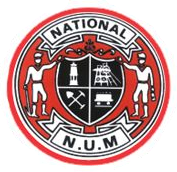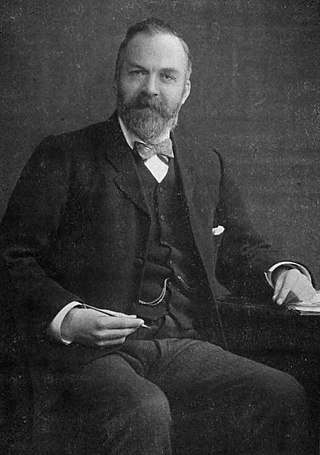Related Research Articles
William Etherington is a British Labour Party politician who was the Member of Parliament for Sunderland North from 1992 to 2010.

The National Union of Mineworkers (NUM) is a trade union for coal miners in Great Britain, formed in 1945 from the Miners' Federation of Great Britain (MFGB). The NUM took part in three national miners' strikes, in 1972, 1974 and 1984–85. Following the 1984–85 strike, and the subsequent closure of most of Britain's coal mines, it became a much smaller union. It had around 170,000 members when Arthur Scargill became leader in 1981, a figure which had fallen in 2023 to an active membership of 82.
The Miners' Federation of Great Britain (MFGB) was established after a meeting of local mining trade unions in Newport, Wales in 1888. The federation was formed to represent and co-ordinate the affairs of local and regional miners' unions in England, Scotland and Wales whose associations remained largely autonomous. At its peak, the federation represented nearly one million workers. It was reorganised into the National Union of Mineworkers in 1945.

Sir William Lawther was a politician and trade union leader in the United Kingdom.
John Wilkinson Taylor was a British Labour Party politician.
The National Amalgamated Union of Enginemen, Firemen, Mechanics, Motormen and Electrical Workers was a trade union in the United Kingdom. It represented stationary engine drivers and cranemen in a wide variety of industries, as well as less skilled workers in the electrical industry and miscellaneous workers.

The South Wales Miners' Federation (SWMF), nicknamed "The Fed", was a trade union for coal miners in South Wales. It survives as the South Wales Area of the National Union of Mineworkers.
The Lancashire and Cheshire Miners' Federation (LCMF) was a trade union that operated on the Lancashire Coalfield in North West England from 1881 until it became the Lancashire area of the National Union of Mineworkers in 1945.

The Nottinghamshire Miners' Association was a trade union representing coal miners in Nottinghamshire, England.

The Northumberland Miners' Association was a trade union in the United Kingdom.

The Durham Miners' Association (DMA) was a trade union in the United Kingdom.
The North Wales Miners' Association was a trade union representing coal miners in Wales.

Abraham Moffat was a Scottish trade unionist and communist activist. He was elected repeatedly to high office in the trade unions and represented the union on government coal boards. He held major union offices: President of the National Union of Scottish Mine Workers; member of the executive committee of the Miners' Federation of Great Britain; Vice-chairman Scottish Regional Coal Board; and member National Coal Board. He served as president of the union from 1942 to his retirement in 1961, when he was succeeded by his younger brother Alex Moffat, also an activist.
Nicky Wilson is a British trade unionist.

William Browell Charlton was a British trade union leader.
The Durham County Colliery Enginemen's Association was a trade union representing engine operators at coal mines in County Durham.
The National Federation of Colliery Enginemen and Boiler Firemen was a union federation in the United Kingdom. Its membership changed over time, but was centred on unions representing enginemen at coal mines.
The National Federation of Colliery Officials was a trade union representing colliery workers in the United Kingdom who were not involved in manual labour.
The National Federation of Colliery Mechanics' Associations (NFCMA) was a federation bringing together unions representing mechanics at coal mines in Great Britain.
The Old Hill and Highley District Miners', Enginemen's and Surfacemen's Association, usually known as the Old Hill Miners' Association, was a trade union representing mineworkers in the Old Hill district of the West Midlands, in England.
References
- 1 2 3 Smethurst, John B.; Carter, Peter (June 2009). Historical Directory of Trade Unions. Vol. 6. Farnham: Ashgate Publishing. p. 525. ISBN 9780754666837. LCCN 80-151653.
- 1 2 "Durham Colliery Mechanics Association". National Archives. Retrieved 6 September 2018.
- ↑ Renouf, Jonathan (1989). A striking change: political transformation in the Murton miners' and mechanics' branches of the national union of mineworkera, County Durham, 1978-1988 (PDF). Durham: University of Durham. pp. 101, 127. Retrieved 6 September 2018.
- ↑ "Personal notes". Colliery Guardian. 5 October 1934. Retrieved 17 October 2018.
- ↑ "Records of the National Union of Mineworkers, Northumberland Mechanics branch". National Archives. Retrieved 6 September 2018.
- ↑ "Scargill tries to rally breakaway loyalists". The Guardian. 8 July 1985.